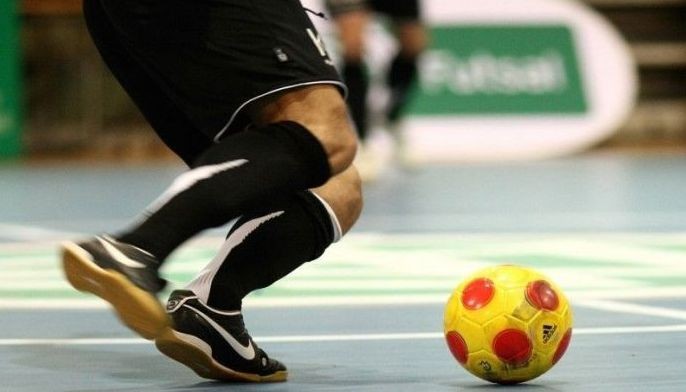MANILA, Philippines – One of the sports poised to go to the next level in the succeeding years — pandemic or no pandemic — is futsal.
From its humble beginnings in the Philippines in what was called “indoor football” in 1981 to mini-football years later, futsal has not only found its legs internationally, but also locally. Some of the more prominent names in the sport and before FIFA officially adopted the sport in 1989 are current La Salle football coach Hans Smit, former national player and current Ateneo Football Program Head Bob Manlulo, and former University of Santo Tomas star, national player and coach Noel Casilao.
While futsal hasn’t drawn the same widespread interest of its 11-a-side cousin, the sport is the first to give the Philippines a medal when the 2007 women’s national futsal team bagged the 2007 Southeast Asian Games bronze medal in Thailand.
Building on the PFF’s current futsal program under FIFA that began in 2001 with the appointment of Joaquin Preysler by the late federation General Secretary Christopher Monfort, today’s efforts are all sorts of exciting.
And the appointment of Dutch and international futsal legend Vic Hermans as Philippine Technical Consultant for the sport is the cherry atop a sumptuous cake with a lot of local flavor. Hermans, a captain of the Dutch national futsal team and FIFA Futsal Golden Ball winner in 1989, is a FIFA, UEFA and AFC futsal coaching instructor with an extensive resume handling the national futsal teams of the Netherlands, Malta, Iran and Thailand.
Through the efforts of the Philippine Football Federation, the Department of Education named futsal as an official sporting activity for secondary girls in the annual Palarong Pambansa in 2016. In 2019, the Department of Education approved futsal as a demonstration sport for elementary school girls. There’s also the annual National Youth Futsal Invitational backed up by international financial giant, Allianz that provides a youth competition for boys and girls ages 14 and 16 years old.
In 2018, after a few years absence the Philippine Sports Commission brought futsal back into the Under-13 and Under-15 age categories for the National Youth Games for both boys and girls giving incentives for LGU’s to support futsal programs.
The Henry V. Moran Foundation, which is the primary supporter of the PFF’s futsal program, has run the successful Liga Eskwela Futsal program for public schools and teaches public school teachers and students the intricacies of the game. The Moran Foundation made a shift to supporting futsal development at the base in 2016.
Like the Moran Foundation, other non-profit groups like the Gawad Kalinga, Payatas FC, the Tondo Futkaleros and Tuloy sa Don Bosco play and promote futsal and other forms of small sided football as a tool for social development and youth engagement. These foundations have a history of working with marginalized youth and linking them to sporting success through the complementary modalities of football and futsal. In particular, GK, Tondo, and Tuloy have a recent history of developing players for national youth teams and the Philippines Football League.
The PFF also has active member associations who promote futsal. Most notable is the Central Visayas Football Association (CVFA), formerly known as the Cebu Football Association. Under the leadership of Eng. Ricky Dakay and now Eng. Rodney Orale, the CVFA adopted futsal as key tool for development, especially for women, given the shortage of footballing facilities in the crowded city of Cebu.
Today, the Inspire-Raya Academy serves as a development program for senior high school girls as a pathway toward the international stage. The program will be overseen by Hermans, who is waiting for government approval to allow foreign nationals to enter the country. The intention is to have similar programs setup across the country.
Hermans added, “Compared to most countries, where activity is focused mainly on professional leagues and mens national teams, the Philippines surprisingly has alot going on at the youth level, especially for the girls. The challenge is to bring this all up to the top with a strong collegiate futsal competition, eventually a semi-pro futsal league, and competitive national teams.”
PFF President Mariano Araneta is in full support of futsal. Said the long-time football official, “We look to build on the futsal activities developed by the PFF and our member associations in collaboration with both public and private sector partners. The pandemic has slowed down our momentum, but is has not deterred our spirit. In the future, we are bullish on the potential of a strong futsal program backed by a solid base, and a stronger futsal program will also help the development of football in our country.”


